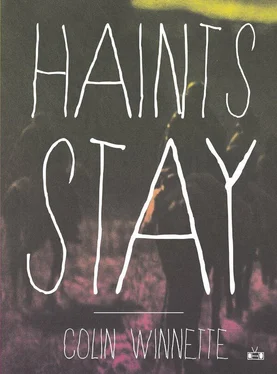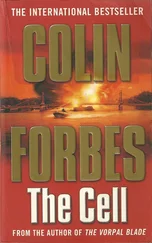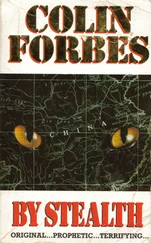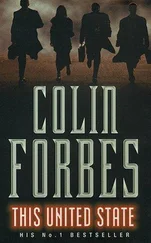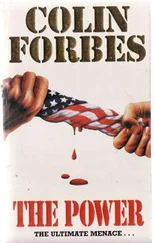“I will sleep outside,” said Bird.
“You’re upset,” said Ramon. “I have upset you.” He was distressed, but soft in his manner.
“I’d like a safe distance between us,” said Bird. “You’ve made me feel uneasy, but I am not upset.”
“I apologize, little bird,” said Ramon. He was missing a tooth and the gap sometimes whistled as he spoke. “I did not mean to upset you.”
“In the morning,” said Bird, “you will introduce me to the boss?”
“Yes,” said Ramon. “But you can sleep inside.”
“I will sleep outside,” said Bird. He pulled back the pistol’s hammer and set it in his lap.
Ramon left him then. Bird sat alone. He set his hand in the still water of the fountain. Mary had abandoned him. He would be alone forever. He was better off alone. He would be a traveler and a gunfighter. He would be quick and steady, and they would not expect it.
The bodies in Wolf Creek were arranged as if the townspeople had been executed in a group. The wagon train had sped in to greet the buildings, but now lingered at the mouth of the town’s central road. They kept their distance, for fear of a plague, until Brooke volunteered to approach the corpses. He promised to remain at a good distance if he could not produce another viable cause of death. He approached the bodies with a bandana at his mouth, and yet the stench still struck him like a hand.
“They are shot,” said Brooke. He coughed and retched from the smell. The sight was less than pleasant too, but nothing he had not seen before. “They are days dead. Maybe weeks.”
Slowly, the wagon trainers approached.
“Who killed them, John?” said Irene.
“I do not know,” he said.
“It’s likely the same riders what killed the men in the stagecoach,” said Jack.
“Or other riders altogether,” said Marston.
Wendell fired his rifle in the air to announce their arrival.
“If anyone is still breathing in these walls, show yourself,” he said. “We are not here for trouble. We’ve been traveling for endless days and we’ve come only to make a home. We will work. We will be good citizens of Wolf Creek.”
There was no response. The wind howled through the hollow buildings. Wendell set the boys to gathering the bodies and burying them on the edge of town. He asked the women to go from door to door and check for life or supplies. He would go with them, for protection. He gave his young confidante a pistol, as well.
Working together, the men had the graves dug before sundown. They set the bodies one by one at the bottom of each, and filled in all the dirt.
They found the homes vacant. Some looked as if they had been lived in but abandoned with haste, others seemed to be packed away, as if the owners had had their fair share of life in Wolf Creek and had decided to seek fortune elsewhere. There was an endless turning over of property happening, explained Wendell. Some element of the life desired was always off and people were hunting down something quiet and peaceful, leaving their shells behind like the crabs he’d read about in books. Each of the wagon trainers had a theory to explain what had happened there. Most involved the sudden oncoming of some great misery. The homes that were packed away, Marston explained, likely belong to the people who were smart enough to avoid the snowfall, people who had some sense of what was coming. It had been almost unbearable that year, nearly everywhere. But the bodies he could not explain. Nor the unshakable feeling that the town had been caught by surprise in some way or another. There was blood all over the prison. Something tragic had occurred and had left the town full of bodies and ghosts.
There was little food to be found, but there was a well and plenty of beds and kitchens and lots of clothing. They butchered a mule and salted the meat. They set themselves up in the homes that were to their individual liking. Brooke asked his wife which home she most preferred and she looked at several before selecting one at the far end of town with a small fence at its side.
“For livestock,” she said. “Horses or pigs.”
Theirs was a small home on a small plot in a very small town. It had two beds, a couch, a fireplace and stove, and a large wooden dining table. For anything they needed, they scavenged. She found a piano in what was once the saloon and she had Brooke and Marston move it into their house. In what might have once been the inn, she opened an armoire in a back room.
“It’s nice,” said Brooke.
“But not for us,” she answered.
The piano took up nearly a quarter of the shared space. She played beautifully. Brooke had never heard anything like it. It was not like bar music, or the upbeat steps you might hear in a brothel. She lingered the notes, let them ring out. She sang softly, songs he did not know. He kept his distance. She was growing confident in her confusion. She called him John and every time the smirk she wore softened. Soon, she called him John as if it were the name she’d always known him by. They lived together more as brother and sister than man and wife, but they had an affectionate air about them that gave their neighbors no question. Slowly, they began to cultivate the land that extended beyond their home. Brooke dug irrigation ditches and planted seeds he found in an abandoned shop near the center of town. They offered a percentage of their yield to Wendell in exchange for the first calf born from his livestock. Brooke also offered to work for him throughout the reconstruction of most of the buildings, or the destruction of those that were too far gone. They actively traded and dealt with the family, but they were less social here than they had been even while wagon training. Occasionally, Marston dropped by and spoke with Brooke. Marston was planning to open the store. He would get a line on products from the nearest city, an address for which he had discovered amongst the old mail that was clogging the cubby holes in the abandoned post office.
“It is as if we had stumbled into Paradise,” said Marston.
They were seated in two of the four chairs claimed by Brooke and the woman he met in the snow, who had taken to calling herself Mary.
“And what if the good people of Wolf Creek return?” said Brooke.
“Wolf Creek is no more,” said Marston, “for we are in Wendell’s Valley.”
They began to brew and grow and cattle were born. In not much time at all, each had fallen into step with a private life of sorts. Wendell and Irene occupied a home by the church, and led sermons and sing-alongs from the pulpit every Sunday. Marston, Jack, and Clay attended these weekly gatherings with the three younger women, Wendell’s confidante, the slanted-speaker, and the girl who had been in the back of the wagon with Mary when she was ill. These women were named Clara, Dorothy, and Caroline, respectively. Clara, it turned out, was Marston’s wife. Formally, at least. She seemed closer to his father, and achieved most of her ends by going through Wendell, rather than Marston. Caroline and Dorothy were sisters to Marston, Jack, and Clay, and Caroline was the youngest of the lot. They sat in the front pew together at the church, and every so often, Brooke and Mary would seat themselves in the back row to watch the proceedings, if only for the company.
They planted a sign at either end of the town, one facing the desert and the other facing the path that led in from the woods.
One night, Brooke and Mary were on the porch, just watching the sky. It was spectacularly plain. The clouds moved along at varying speeds. It was otherwise a constant shade of blue.
“Could you ever have imagined our lives would one day look like this?” said Brooke.
“I am not so sure what you imagine our life looks like,” said Mary. “When I look, I hardly see anything at all.”
Читать дальше
